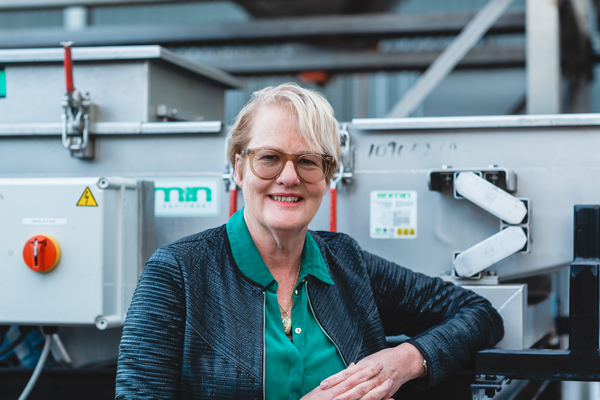
Carbon fibre super bridges, waste-to-energy generators and cutting-edge materials are all part of Lyn George’s vision to manufacture an innovative future for Geelong.
The newly-minted Order of Australia Medallist and husband Ross George are helping the city transition from “smokestack industry” to advanced manufacturing through their company Austeng.
“We work with a lot of start-up companies and universities,” Ms George said.
“We take their concepts and ideas and turn them into prototypes or commercial production, to demonstrate to the outside world that they work.”
The couple’s North Geelong engineering company had initially provided specialised equipment to Ford.
But when the car manufacturer announced it was pulling out of Geelong several years ago, they turned their focus towards new innovative projects.
“It has opened up a lot of different opportunities in a lot of different sectors,” Ms George said.
“When we first started, we thought one or two would take off but many of them are going extremely well.
“I’ve become an advocate for innovative start-ups.”
About the same time, she joined the Geelong Manufacturing Council and she is now the organisation’s first female chair.
“In the early days there weren’t that many women in the meetings, which has changed now,” she said.
“So I suppose I’m a leader in that sense.”
Ms George was “absolutely thrilled” to receive an Order of Australia Medal and hoped her award would inspire local women to pursue manufacturing careers.
“It’s interesting, stimulating and can be well-paid career,” she said.
Women could also bring “a diversity of approaches” and unique people skills to the industry, she said.
“There should be more women in manufacturing. I think a lot of manufacturing companies miss out.”
Ms George said Australia should “leverage its abundant natural resources”, develop its advanced manufacturing sector and reduce its reliance on overseas supply chains.
“We should export complex machinery to the world rather than export raw material and receive it back in the finished products.”
Ms George said Australia had one of the highest rates of patent applications per capita internationally but one the lowest rates of applications being commercialised.
That, and Geelong companies adapting to produce hand sanitiser and equipment during the COVID-19 pandemic, demonstrated the untapped local potential for innovation, she said.
“Many local companies have stepped up into the breach. We have the ingenuity and the trade skills – particularly in Geelong.”






